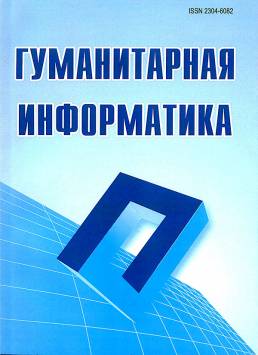The philosophical presuppositions of Turing's test for artificial intelligence systems.
The principles of Turing's test for artificial intellectual systems are discussed in this article. It is known that A. Turing intended to avoid philosophical debates about essence of the reason by means of the specific test. The author of this article tries to demonstrate that one cannot ignore philosophical questions in the process of formulating of the test in any case because some interpretations of the reason's essence are the presuppositions of 'Turing's interval' that is the basis of the test.
Download file
Counter downloads: 335
Keywords
Authors
| Name | Organization | |
| Ladov V.А. |
References
Hauser, L. Why Isn't My Pocket Calculator a Thinking Thing? // Minds and Machines, Vol. 3, No. 1 (February), 1993.
Серл, Д. Мозг, сознание и программы. // Аналитическая философия: Становление и развитие (антология). М., 1998. С. 376-400.
Тьюринг, А.М. Вычислительные машины и разум. // Хофштадтер, Д.; Деннет, Д. Глаз разума. Самара, 2003.
Ладов, В.А. Философские проблемы искусственного интеллекта: Учебно-методическое пособие. Томск, 2005.
Turing, A.M. Computing machinery and intelligence. Mind, № LIX, 1950. Р. 433-460.
Моисеев, В.И. Интервал Тьюринга и имитация интеллекта // Философия искусственного интеллекта. Материалы Всероссийской междисциплинарной конференции. М.: ИФ РАН, 2005. С. 307-309.
